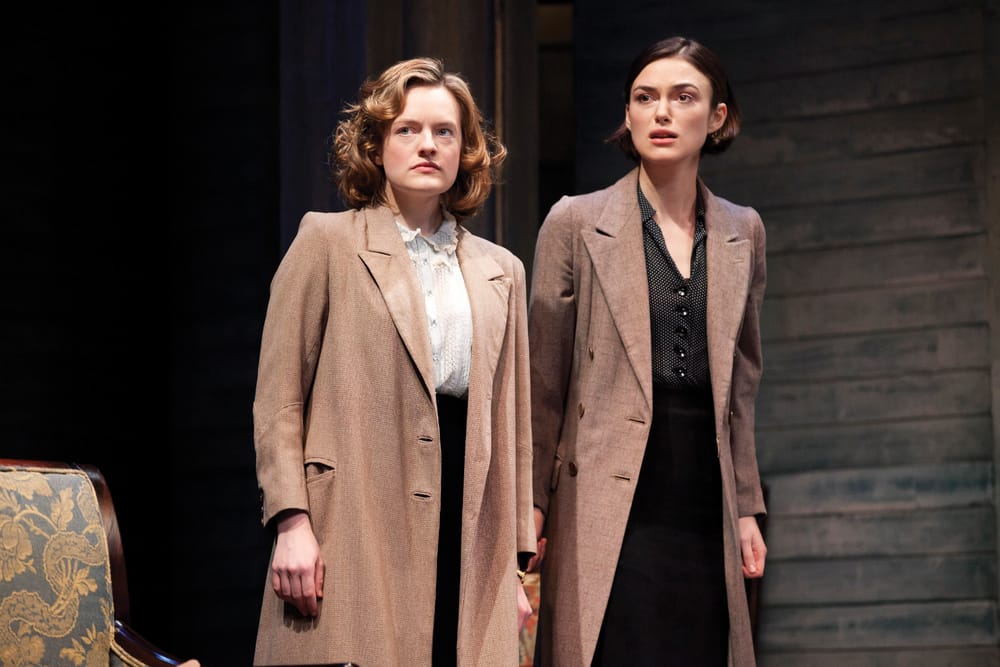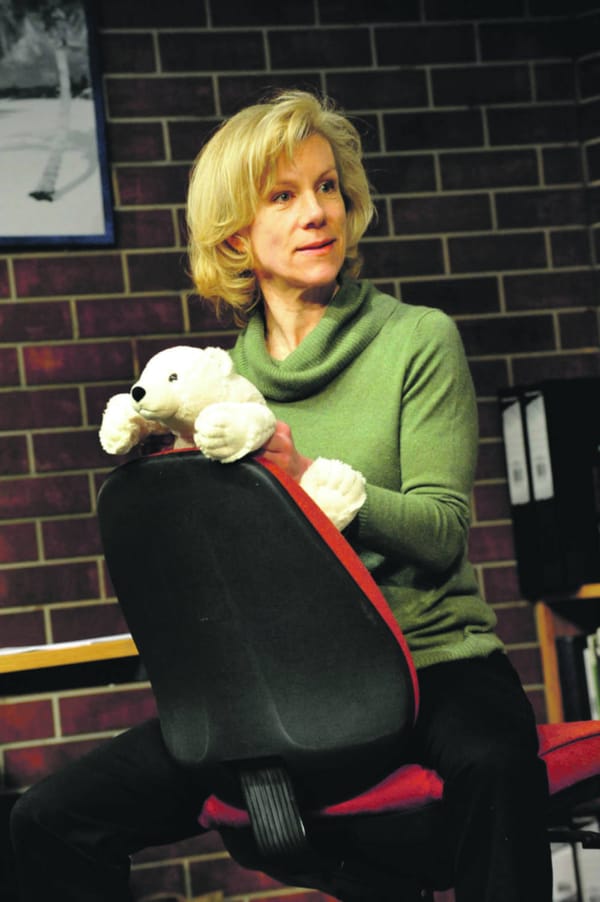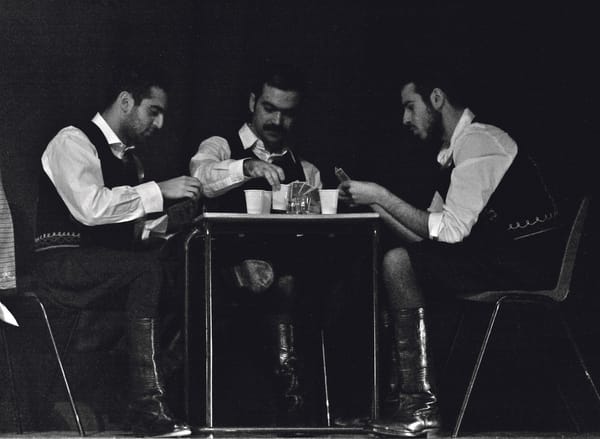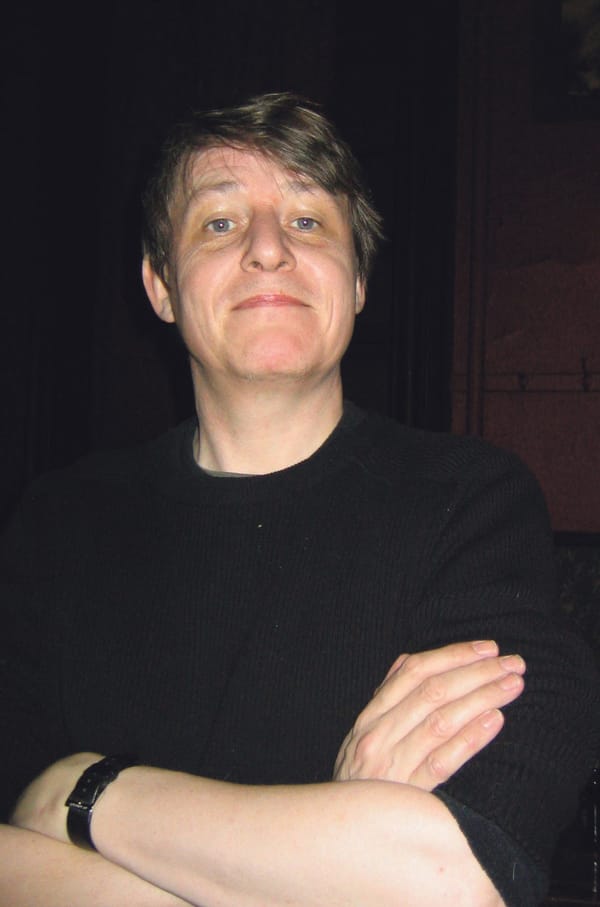The Children's Hour
Knightley unleashes a brilliantly articulate hurricane ending

Lillian Hellman’s play The Children’s Hour was first produced in 1936, and put on sporadically for a number of years before hitting the West End this year, starring Elizabeth Moss of TV show ‘Mad Men’ and the inimitable Keira Knightley, making it the current hot ticket. It’s the story of what follows when two 1930’s boarding school teachers are accused by a pupil of having a lesbian affair, and is based on a true case. As a result of the homosexual content, it was initially banned in several cities, but was illegally performed in New York to rave reviews.
The show starts with a rural schoolroom scene; a girl who we later learn is critical to the story enters and wanders around the stage in a mesmerising, ballet-like dance. A crowd of schoolgirls follow and tumble in a silence broken by the arrival of Mrs Mortar, a flapping, fussy old lady character that initially comes off as forced and a little sloppy. Once she starts interacting with the other adult characters, however, she gains dimensions with some pleasing comedy. Elizabeth Moss’s timing on some of the more sensitive moments could rival a film, and her subtlety is impressive.
But the main star is the actor playing Mary (Bryony Hannah). The scope of her ability is truly magnificent. There are parallels here with Atonement, but Bryony is more straightforward – the intricate emotional scarring Mary’s father’s suicide has left on her makes her more complex and brutal. The actor is actually 26, and I’m not surprised – playing that very cold kind of malice requires adult experience as well as talent. But, can Keira Knightley act on stage? We’ve all seen her playing ‘being pretty, falling in love with the lead man, and being pretty some more’ characters, and I was dubious as to the scope of her talent. You can hear the audience hold its breath as she enters. It’s surprising how naturally playing a maternal, largely non-romantic figure comes to her. At first, her interaction with Moss is a little forced, but the two warm into the scene quickly. The low point of the play comes with the scene in which Mary is confronted by the two women – it comes off as false purely, I think, because it’s so difficult to have four people in a room arguing for a prolonged period whilst appearing natural. The stage didn’t feel big enough, somehow. However, the show quickly moved towards its climax with some flawlessly executed, subtle twists. And what a climax. Knightley unleashes a brilliantly articulate hurricane ending in possibly one of the best speeches I’ve ever heard. It was incredibly moving.
The Children’s Hour doesn’t deal with issues like homophobia, scaremongering and trust in an obvious or straightforward way. Instead, it embeds it in a web of deceit, lies and human relationships. Beautifully written and well worth the relatively student-unfriendly price (go to the theatre at 10am on the day for £15 day tickets).








